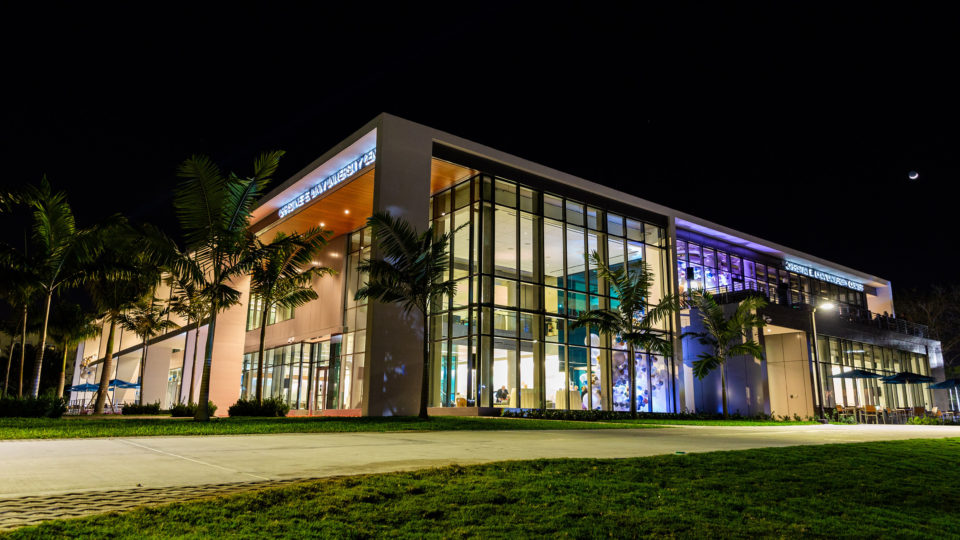Lynn University was selected as one of the most environmentally conscious colleges in the nation, according to the Princeton Review®. The education services company recently featured Lynn in its online resource, The Princeton Review Guide to Green Colleges: 2023 Edition—designed for college applicants seeking schools with strong commitments to the environment in their campus policies, programs and practices. The university has consistently earned the honor since 2015.
Participating institutions were evaluated during the 2021–22 academic year using school-reported data and student surveys based on factors such as the influence of sustainability on education, the visibility and impact of student environmental organizations, and administration's support of awareness and conservation efforts. Of the 713 schools considered for the guide, only 455 colleges were selected.

"Lynn is focused on finding innovative ways to reduce its carbon footprint and engage its students in environmental discourse," said President Kevin M. Ross. "We are constantly evaluating our academics, operations and development strategies through a 'green' lens and have made great strides. As global sustainability becomes an ever-increasing priority, we will continue to implement new initiatives, raise awareness and influence change."
Since launching its sustainability initiatives in 2009, the university has implemented a wide range of programs that include the use of reclaimed water for irrigation, the reduction of energy usage, green transportation options and sustainability-focused academic programs for students. Over the years, the university also attained LEED (Leadership in Energy and Environmental Design) certification for three buildings on campus—the Mohammed Indimi Business Center, the Mary and Harold Perper Residence Hall and the Christine E. Lynn University Center.

Lynn also encourages its students to participate in meaningful dialogue and social engagement through its Social Impact Lab, which includes an on-campus Sustainability Committee, community outreach initiatives through its Citizenship Project, and collaborative programs that address economic, political and social challenges to sustainability through Project Civitas.
"Over the years, we have seen a significant growth in the number of colleges pivoting to sustainability-related policies and programs," said Rob Franek, Editor in Chief of The Princeton Review. "We are proud to shine a light on these schools and to continue serving as a unique resource for students who want their 'best-fit' college to also ideally be a green one. We highly recommend each and every one of the colleges in our guide."
For more information on Lynn University's sustainability and environmental initiatives, please visit lynn.edu/sustainability.




